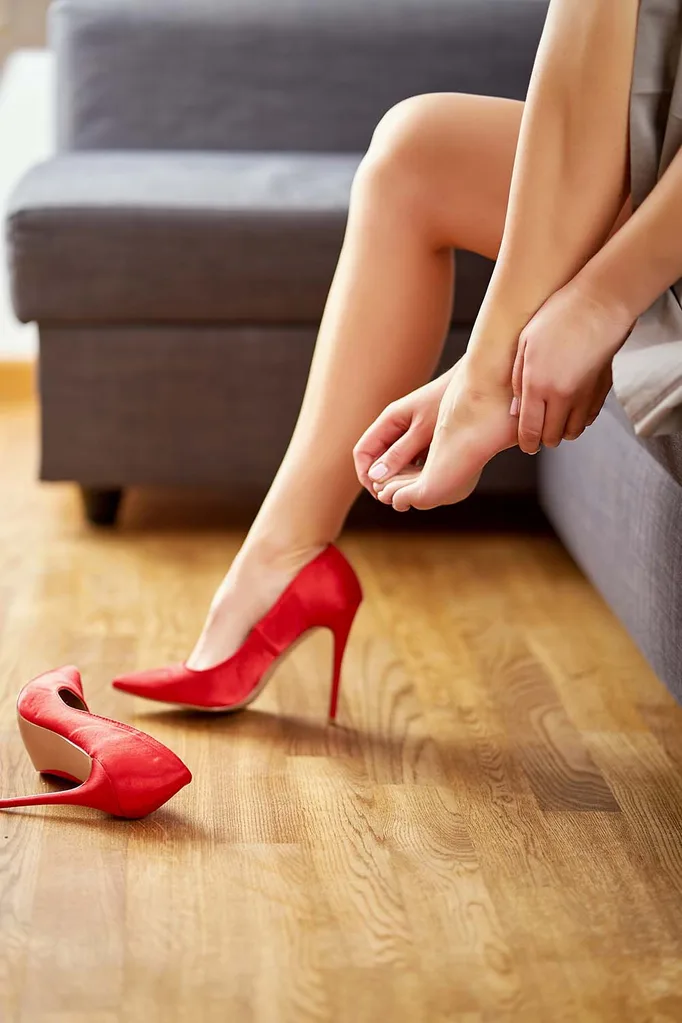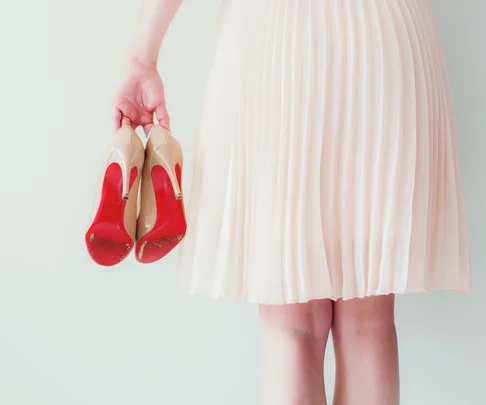The #MeToo movement took the world by storm with women all over the globe standing up and speaking out against sexual harassment.
Now there is the #KuToo movement in Japan, where women are standing up (in their flats) to protest about being forced to wear high heels to work.
A group of Japanese women, led by Japanese actor and writer Yumi Ishikawa, submitted a petition to the Japanese government in June to protest against what they say is a de facto requirement for female staff to wear high heels at work.
Ishikawa launched the campaign after complaining in a tweet about being made to wear heels for a hotel job, and the tweet went viral. Clearly, her message resonated.
Campaigners say wearing high heels is considered to be near-obligatory when job hunting or working at many Japanese companies.
They’re likening the requirement to modern-day foot-binding. (Foot binding is the custom of applying tight binding to the feet of young girls to modify the shape and size of their feet. The popular practice in some Asian countries significantly limited the mobility of women and resulted in lifelong disabilities for most.)
KuToo, by the way, is a play on words from the Japanese kutsu, meaning shoes, and kutsuu, meaning pain.
The thing is these women have an excellent point (and this is not even factoring in how the requirement to wear heels could be construed as mysogynist.)
Women have four times as many foot issues as men do and many podiatrists contribute this to the wearing of high heels.
High heels throw out your postural alignment, leading to back, knee and hip pain.
Those who wear high heels on a daily, or very regular basis, over years, can also actually suffer anatomical changes to their body. As well as the extra strain on the back and knees, the calf muscles shorten and the tendons get tighter and thicker.
But Japan’s health and labour minister Takumi Nemoto seems to have little regard for these facts. He has defended Japanese workplaces that require women to wear high heels. He argues it is “necessary and appropriate”.
Huh?
“It is socially accepted as something that falls within the realm of being occupationally necessary and appropriate,” he told a legislative committee on Wednesday.
According to the Guardian the case underlines what some say is a deep-seated problem with misogyny in Japan. Last year, an MP announced that women should have multiple children because women who chose to remain single would become a burden on the state.

This is not the first time women have united to speak out against being forced to wear heels to work.
In the UK a similar petition was signed by more than 150,000 people in support of receptionist Nicola Thorp, who was sent home from work in 2016 for wearing flat shoes.
The case prompted an inquiry on workplace dress codes, which highlighted other cases in the UK where women were required to wear heels, even for jobs that included climbing ladders, carrying heavy luggage, carrying food and drink up and down stairs and walking long distances.
But the government wouldn’t change the law, saying scope for redress already existed under the Equality Act 2010.
This year, Norwegian Air was widely criticised for requiring female cabin crew to carry a doctor’s note if they wanted to wear flat shoes.
Julia Roberts famously arrived barefoot for the Cannes film festival in 2016, after women were denied access to the red carpet in 2015 if they weren’t in heels. The festival director apologised but still didn’t change the rule.
On a positive note, in 2017 Canada’s British Columbia province banned companies from forcing female employees to wear high heels. Tick.
And when Stuff looked into the dress codes for airline cabin crew its reporter discovered that flat shoes are actually a requirement for cabin service if you work for Qantas or Virgin Australia. Very sensible and supportive.
According to Employment New Zealand, “An employer may have dress requirements to identify staff, for staff protection, or to reflect the type and status of the business.”
It explains, “An employer will often have a dress code for a workplace or part of a workplace, especially if the employees are dealing directly with the public. This may be, for example, professional, smart, business casual, casual etc. Different people can have different ideas about what a dress code means, so it may be useful to provide examples.”



